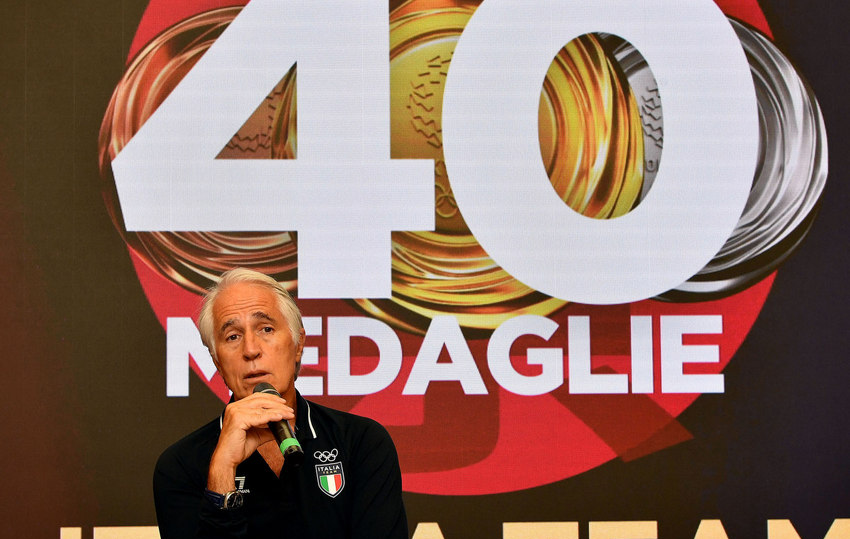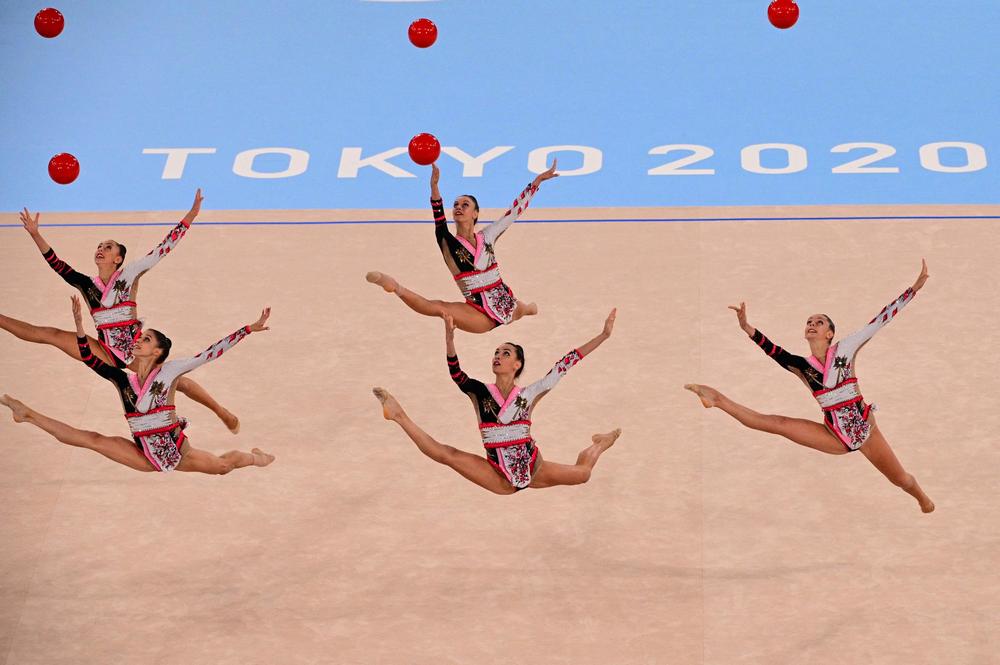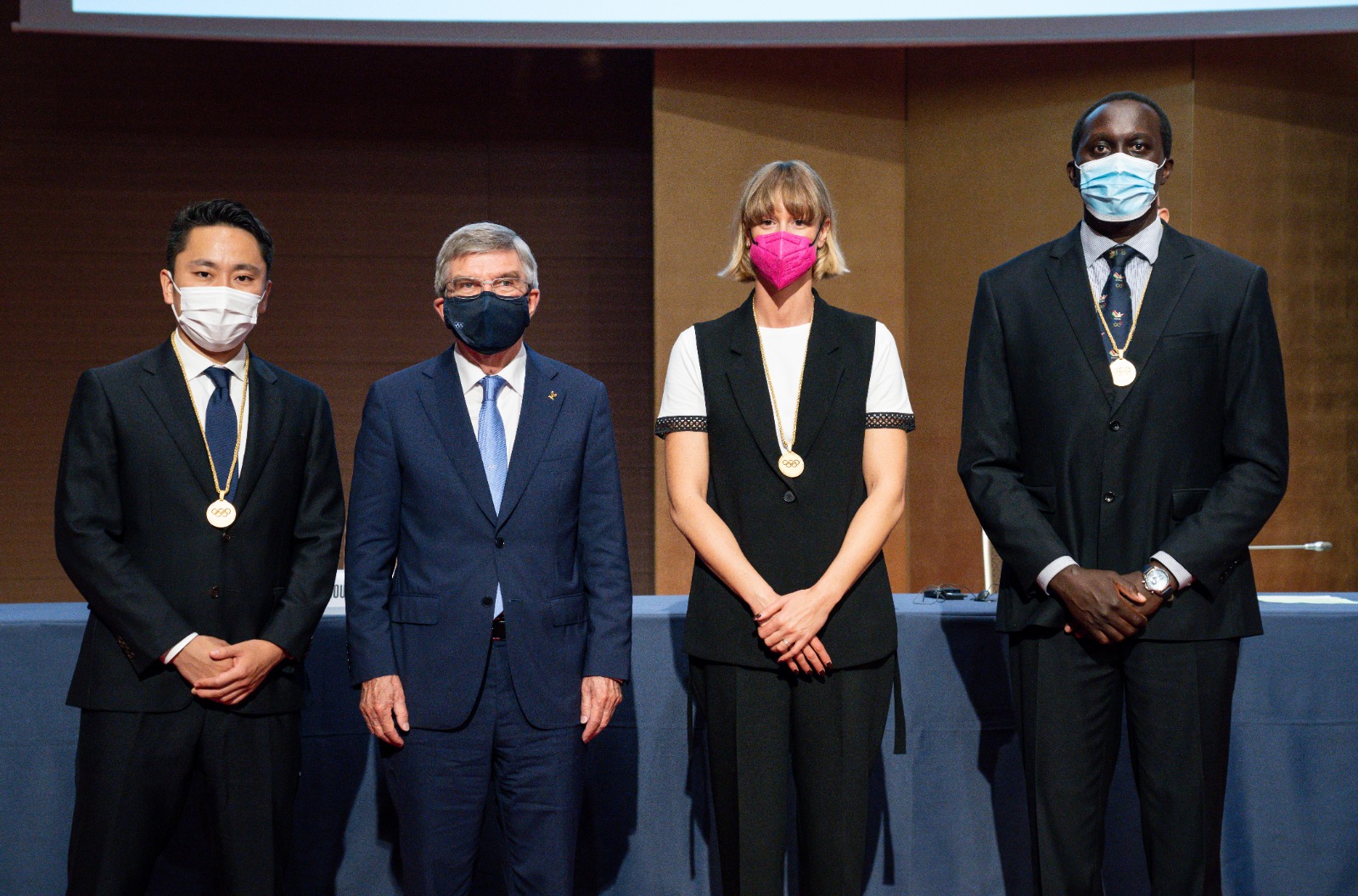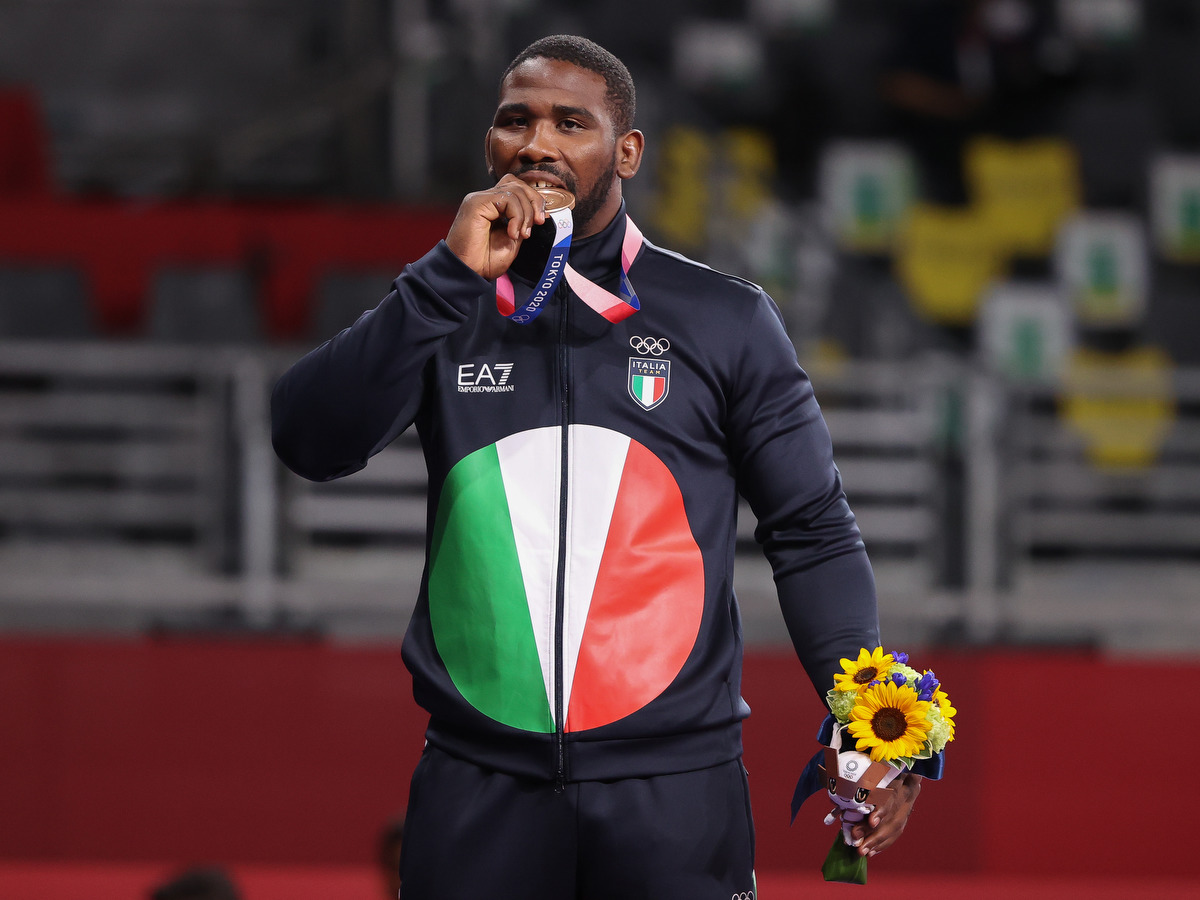Never so strong, never so successful, never so special. Italy says goodbye to Tokyo 2020 with a historic record of 40 medals (10 gold, 10 silver and 20 bronze) and a place in the top ten of the world's competitive firmament. With the highest number of podiums among EU countries. Numbers and statistics give depth to the contents of the mission in Japan, connoting it with the trappings of success. The analysis of 17 days of emotions lives in the words of CONI President Giovanni Malagò.
"I was convinced that we would get to 39 because of a philosophy of life I often refer to, multiplying everything by 13. I was certainly sure that we would improve our tradition, I always said so. Past Los Angeles '32 and Rome '60. The second record: 50% of these medals are bronze, a record. We won at least one medal a day. It had never happened before. This record can only be equalled. It is a multi-ethnic and integrated Italy, with athletes from all regions of Italy and born on all five continents. We have been on the podium in 19 disciplines," began the President, before highlighting all the 'firsts' celebrated in the XXXII Olympic Games and analysing the scenario outlined by the results.
"We won 12 more medals than Rio, growing by 43%. The average age of the gold medallists is 26.33, one year and three months higher than Rio - but considering that there was a five-year cycle, an anomaly - but by far the lowest in the last 25 years since Atlanta. The 19 gold medallists are the highest number since Athens 2004 when an entire team - women's water polo - was on the podium's top step. Fifteen men have won the Games: this has not happened since Barcelona '92 and then Los Angeles in 1984. The average age of the medallists is 26.84: half a point lower than Rio, two years more than London and even three years lower than Beijing. The total number of medallists is 66 for a total of 73 podiums. The number of medal-winning countries is growing, 93 compared to 87 in Rio, 85 in London and 86 in Beijing. Sixty-five nations made it to the top of the podium, compared to 59 in Rio and 54 in London and Beijing. Sixteen medal-winning regions compared to 15 in 2016: Lombardy is the most successful, with 16, followed by Veneto with 7, the regions preparing to host the 2026 Games. The city with the most athletes on the podium was Rome, with 5, followed by Naples, with 4. Four swimmers, after Calligaris, Fioravanti, Rosolino and Detti, stood on the podium twice in the same edition: Burdisso, Martinenghi, Ceccon and Miressi. The youngest medallist was Burdisso (not yet 20 years old), the oldest Ado Montano (42 years old). The Federation with the highest number of medals won is still swimming (7), although one less than Rio. The USA has 10 fewer medals, China and Japan 17 more, France is down 9, Great Britain 3 and Germany 5 (with 7 golds less). Australia (17 podiums and 9 golds) and Russia (14 more) have made great strides.
After the balance sheet, there was time for reflection and thanks. "I want to thank all the Olympic Preparation, starting from Anna Riccardi, Giampiero Pastore and Alessio Palombi, up to Elisa Santoni and all the others, Danilo di Tommaso and the entire Press Office, Diego Nepi and his team because without Casa Italia I do not know what this edition of the Games would have been. I received many compliments from worldwide for our hospitality house, which gave visibility to the companies that trusted us, celebrating those who went on the podium. The credibility of Italian sport is - objectively - at its highest level. I can say that the foundations have been laid for hosting major sporting events in our country. I want to thank all participants in the expedition, including the 12 fourth-place finishers and those who struggled at the back and did not get what they deserved. We managed to fly the tricolour in the empty stadiums. I want to thank the extraordinary technicians, the officials, the doctors, the physiotherapists, the warehousemen, giving a thought to Bruno Rosetti, who was unable to play his match due to Covid positivity. It was the mirror of an atypical but resoundingly successful Olympics. By the IOC, the Organising Committee and the Japanese Government. I said that these Games would save the Olympics. I have been saying for a year and a half that we will do well, that we have the strongest team ever and that we will see some incredible surprises. A gold and a half were predicted, between Busà and Tita and Banti. All the others were not accredited, at least not by gold. And many other victories did not come despite being expected. Covids, revised training, lack of an audience: too many variables, it was not easy to make predictions, but it was the best Olympics ever for us. We have made a country happy. The monstrous TV share and the great media coverage testify to this. This CONI team is very competent, and they put passion and pride in the Olympic Committee that we represent. We will go to the Quirinale on the 23rd to honour the invitation of the President of the Republic. President Draghi is also considering a dinner meeting with the delegation. I embrace everyone. I put my face on it. Then the rest was done by the athletes. I only know this way of fulfilling this role, with passion, being always present. I gave everything I had.”






